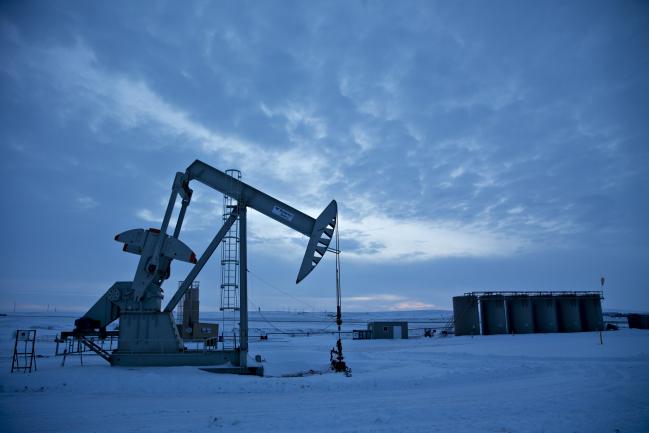(Bloomberg) -- Oil tumbled below $53 a barrel for the first time in a year amid concern OPEC’s plans to cut production won’t be enough to stem a surge in stockpiles.
Futures fell more than 7 percent in New York and London. A government report Wednesday may show U.S. crude inventories rose for a ninth straight week, according to a Bloomberg survey of analysts. President Donald Trump said that Saudi Arabia has been "responsive" to oil price requests.
A selloff in global equities added to the oil rout, adding to worries about slackening demand. The S&P 500 Energy Index slid as much as 3.5 percent, with all of its members down on the day. Devon Energy Corp (NYSE:DVN). and Newfield Exploration Co. fared the worst, losing more than 7 percent each.
“I think you’re going to see a risk-off type of market," Tariq Zahir, a New York-based commodity fund manager at Tyche Capital Advisors LLC, said in an interview. “It wouldn’t be surprising to see new lows being printed on oil" if U.S. inventories jump.
Russian Energy Minister Alexander Novak said Monday that the country and its OPEC allies need to watch the oil market in the coming weeks before making any decisions to reduce output. The wait-and-see approach contrasts with Saudi Arabia’s call for cuts, just weeks before a key summit in Vienna.
Crude markers in New York and London have both fallen more than 25 percent from their October highs on concerns over a supply glut after the U.S. granted waivers to some buyers of Iranian oil despite sanctions.
“The name of the game in the oil market is volatility,” International Energy Agency Executive Director Fatih Birol said at a conference in Oslo. “And with the increasing pressure of geopolitics on oil markets that we are seeing, we believe that we are entering an unprecedented period of uncertainty.”
West Texas Intermediate for January delivery sank $3.98 to $53.22 a barrel on the New York Mercantile Exchange at 1:38 p.m. local time. Total volume traded was 57 percent above the 100-day average, while a measure of market volatility jumped to the highest since February 2016.
Brent for January settlement dropped $4.52 to $62.27 a barrel on the London-based ICE (NYSE:ICE) Futures Europe exchange, the lowest since December. The global benchmark crude traded at a $9.04 premium to WTI.
